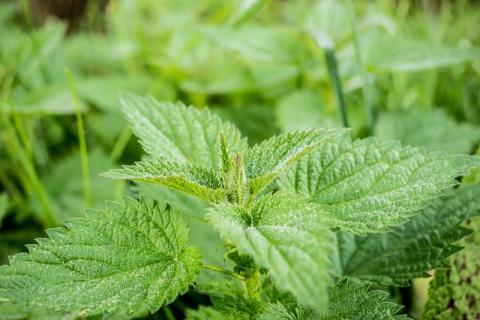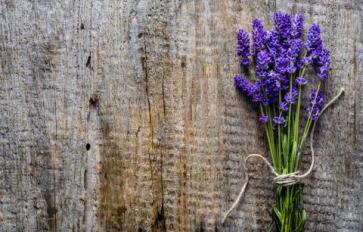
It grows in meadows and fields, and you might find one or two popping up in your yard. It’s a soldier-straight plant with heart-shaped leaves and delicate pink or yellow flowers. But don’t try to pick it, or even brush up against it. The tiny hairs on the stinging nettle release chemicals that will make you wish you hadn’t.
But this obnoxious perennial plant is actually a very useful medicinal plant – and ironically, can take away the itch and sting of insect bites or eczema.
Originally from Europe and Asia, the Urtica dioica, or common nettle, has been used as a remedy for a number of disorders, and herbalists often place ads to find patches of stinging nettles untouched by chemicals and pesticides. The plant is useful from the tip of its taproot to the end of its hairy leaves.
The chemicals that make the sting are the same ones that make it so useful – serotonin, histamine, and acetylcholine. When the little hairs on the leaves are dislodged, they become tiny needles, burying these chemicals into our skin. But when processed, the stinging nettle has antimicrobial, analgesic and astringent properties.
The plant can be used to alleviate the symptoms of the enlarged prostate, urinary issues, joint pain, allergies, gout, and even anemia. Studies have suggested stinging nettle can help prevent the growth of prostate cancer cells, treat arthritis, reduce bleeding after surgeries or during menstrual cycles, treat eczema and insect bites, and even help control blood sugar levels.
Stinging nettle leaves (minus the stiff stem portion) can be cooked in soups or stews, just like kale or spinach. They are a fantastic source of Vitamins A and C, as well as iron. Once the leaves are cooked, the stiff hairs are softened and no longer cause the stinging sensation - and it is tasty but carries a slight bitter aftertaste if the leaves are large. You can eat cooked nettle leaves without the fear of tiny needles in your tongue.
You can find stinging nettle products in most health food stores. The plant is dried in leaf form for teas or powdered for use in capsules, tablets or tinctures. Consult a naturopathic doctor for help in determining the proper use or dosage of stinging nettle to treat an illness. Always consult a medical doctor if you are taking medications for other issues, or if you have questions concerning the interactions of the plant with medications.








